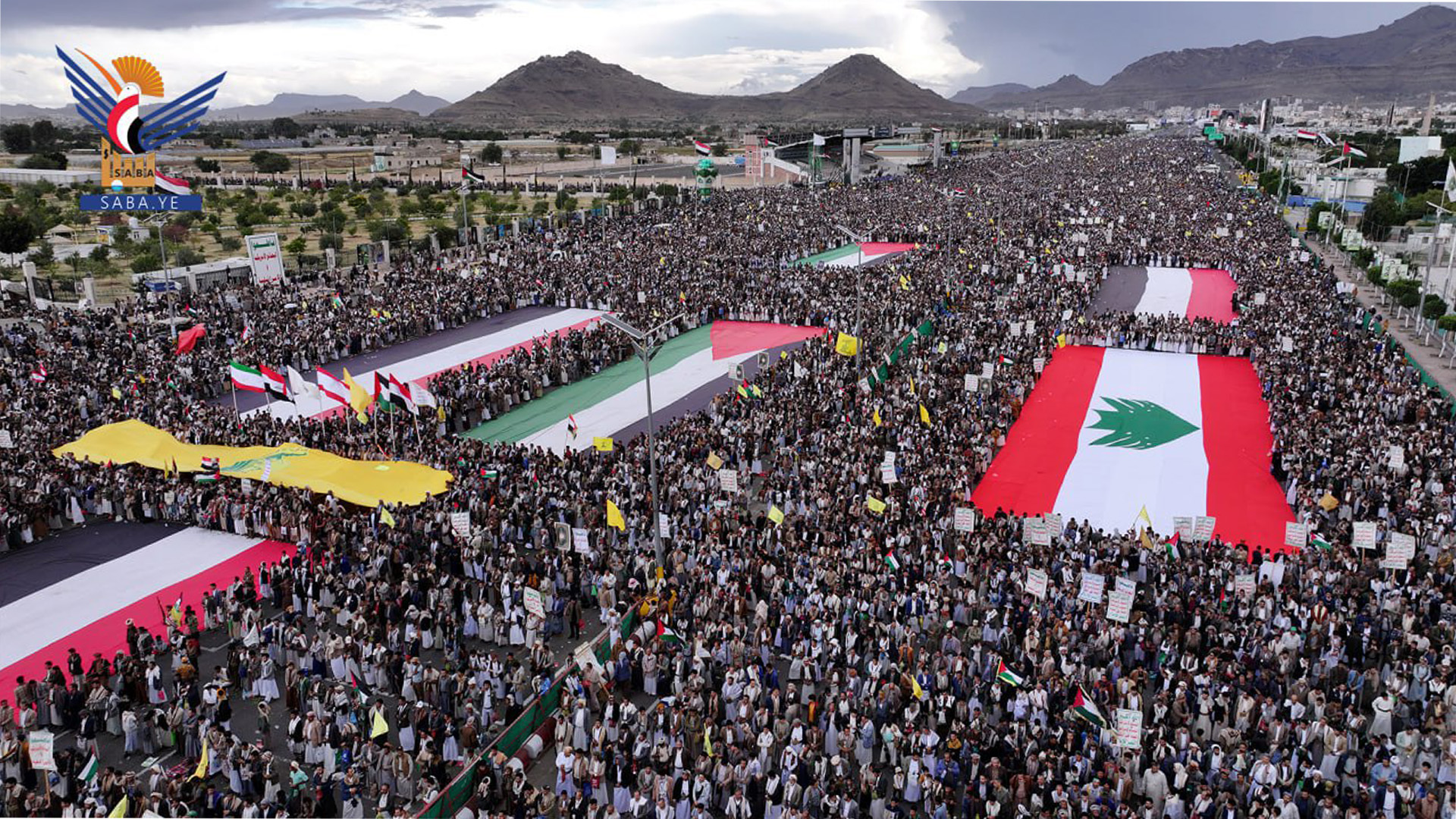Sana'a – Saba: Report by Jamil Al-Qashm
The Muslim world faces political, intellectual, and social challenges amid attempts by colonial powers to reshape its identity according to their agenda. In light of these transformations, there is an urgent need for a civilizational project that restores the nation's status and charts an independent course that preserves its religious and cultural identity.
In response to this reality, the Quranic Project in Yemen has emerged as a renewal movement based on the Holy Quran as the primary source for revival and true independence—transcending military dimensions to build a comprehensive civilizational consciousness. This project is not merely a reaction to current challenges but rather a strategic vision aimed at reviving the nation and restoring its role on the international stage.
The late leader Hussain Badr al-Din al-Houthi established the foundations of this project based on firm Quranic values, drawing principles of justice, independence, and dignity from its teachings. Since the project's inception, Revolution Leader Abdul Malik al-Houthi has emphasized that adherence to the Quran is the only way to break free from dependency and restore the nation to its rightful place as an active global force.
The project is built upon the principles of justice and transparency in governance, which are considered the foundation of good governance. According to Abdul Malik al-Houthi, the Quran provides a clear methodology to combat corruption and establish an administration based on justice and efficiency, ensuring stability and sustainable development.
A commitment to Quranic values promotes a fair and incorruptible administration that rejects favoritism, which in turn strengthens public trust in state institutions. By adopting this approach, administrative reform becomes an urgent necessity for achieving comprehensive progress that serves the interests of the people without foreign influence.
The Quranic Project asserts that just governance goes beyond combating corruption; it also ensures efficiency, accountability, and a citizen-centric state, rather than one that serves as a tool for domination and exploitation.
Beyond governance, the Quranic Project prioritizes the poor and the oppressed, recognizing them as the most affected by unjust systems. It calls for fair wealth distribution, support for marginalized groups, and the establishment of an independent national economy, free from colonial dependency.
The late leader Hussain al-Houthi emphasized that “a just economy ensures the rights of the poor before the rich and prevents exploitation and monopolization.” This vision stems from a clear Quranic concept that seeks to protect society from class disparities and establish social solidarity.
Thus, the project seeks to build a just economic system that strengthens local production and safeguards national resources from plunder and exploitation. It asserts that true political independence cannot be achieved without economic liberation, making economic freedom a cornerstone of the Quranic Project.
The project extends beyond economic reforms to emphasize Yemen’s complete liberation from foreign domination as a prerequisite for national sovereignty. It calls for political independence and rejects all forms of external interference.
Abdul Malik al-Houthi has repeatedly stressed that “a free and independent Yemen relies on itself and resists any attempt at foreign tutelage.” This reflects a deep awareness of the importance of sovereignty in the face of foreign agendas imposed by global powers.
This vision has been evident in Yemen’s political and military stances in recent years. The country has emerged as a key player in countering Zionist hegemony, with military operations in the Red Sea and the Gulf of Aden reshaping regional conflict dynamics—all within a Quranic strategic framework aimed at resisting all forms of colonialism.
In addition to political and economic goals, the Quranic Project seeks to preserve Yemen’s religious and cultural identity as a bulwark against Westernization efforts. It strengthens social cohesion and protects the fabric of society from cultural decay promoted by foreign agendas.
Abdul Malik al-Houthi asserts that “resisting hegemony and tyranny is not just an option; it is a religious and moral duty to uphold the dignity of the nation.” This underscores the project’s role in resisting regional and international challenges by upholding authentic values.
The project also aims to minimize political divisions and internal conflicts, creating a stable environment conducive to sustainable development. Justice, anti-corruption measures, and economic self-sufficiency all contribute to building a strong, united Yemen capable of overcoming challenges.
In this context, Algerian researcher Dr. Nour al-Din Abu Lahia argues that the Quranic Project redefines the concept of jihad to include intellectual, economic, and cultural dimensions, rather than merely military action. He notes that “Yemen’s ability to withstand aggression despite years of war and blockade reflects the depth and strength of this project in building a resilient and committed society.”
Dr. Abu Lahia emphasizes that the project reintroduces Islam as a religion of resistance and justice, countering tyranny and oppression while providing an independent civilizational alternative to externally imposed models. While colonial powers attempt to erase Islamic identity, the Quranic Project seeks to restore the nation to its authentic roots.
Amid these global challenges, there is growing awareness of the need to return to the Quran as the primary reference, away from external influences that have long sought to erase Islamic identity. The Quranic Project is not just about reforming Yemen; it presents a model that can inspire other Muslim nations.
The project’s positive aspects—such as anti-corruption efforts, social justice, and national sovereignty—make it a blueprint for a more stable and just Yemen. Furthermore, it has become a source of inspiration for resistance movements across the region, reinforcing the values of steadfastness and defiance.
Many scholars and intellectuals argue that the impact of the Quranic Project extends beyond Yemen, presenting a historic opportunity for the Muslim world to reclaim its leading role. As confrontations and struggles continue, the project remains one of the biggest obstacles to colonial ambitions, offering a self-reliant alternative that rejects political and intellectual subjugation.
Abdul Malik al-Houthi affirms that the Quranic Project is not exclusive to Yemen but serves as a message for the entire Muslim world—that returning to the Quran is the only path to achieving true victory and renaissance. It is not just a local vision but a civilizational project that reshapes Islamic consciousness in the face of modern challenges.
As global crises escalate, the Quranic Project remains a model for achieving political, economic, and intellectual independence, offering the only viable path for the revival of the Muslim nation and the failure of colonial schemes. This vision cements its role as the foundation for any initiative aimed at building a strong and independent Islamic nation.
E.M

| more of (Reports) |




